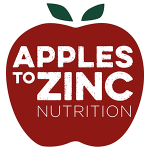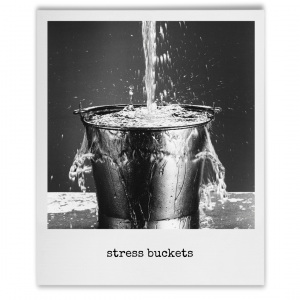When we think about stress we often think about emotional stressors but do you ever think about food stress? Do you ever consider that what we eat might be making our stress worse?
In the blog below I will be delving into food stress and explaining which foods can help you and which can create their own stress. I’ll also be giving you some top tips to help you shape up your eating.
The Stress Response
When the body is stressed, it releases the hormone adrenaline. This hormone prepares the body for battle and increases glucose in the blood and decreases insulin levels. It stimulates the immune system in case of injury and can make the mind feel sharp and focused. This response is designed to be a short-term reaction. In 21st century living stresses are often more long term. We release another hormone called cortisol to maintain the stress response if the initial stress is prolonged. The body only has one stress response and that doesn’t matter if it is a physical stress, emotional stress, environmental stress or a food stress.
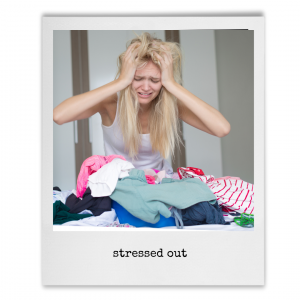
How does Stress impact health?
All forms of long term stress have the potential to harm health. Stress can put a strain on all the body systems. Working from top to toe:
- it can increase headaches, impact sleep quality and worsen mood
- It can increase blood pressure which can damage arteries and put a strain on heart health
- it can increase stomach acid production and increase heart burn risk. It can also slow digestion and increase tummy troubles such as bloating
- it increases blood glucose increasing risk of type 2 diabetes and weight issues
- it creates muscle tension making you feel weak and achy
- it puts a burden on the immune system which make increase inflammation and increase the chances of you getting coughs and colds
- it can even impact fertility and erectile function
What triggers our stress response
I like to simplify stress to 4 main “buckets of stress”. We are generally okay if all our buckets are fairly empty or at least nowhere near full. Once things start to fill up or overflow on any bucket then we may start to feel the negative impacts of stress.
As this blog is about food stress we will focus mainly on that but here are my four main buckets
PHYSICAL STRESSORS are all things to strain your body and include wound healing, allergies, chronic health conditions, physically demanding jobs, medications etc
EMOTIONAL STRESSORS here think about grief, moving house, relationship worries, financial woes, demanding job deadlines, managing challenging or unhappy children etc
LIFESTYLE STRESSORS these are aspects such as poor sleep, too little exercise, not enough relaxation, pesticides on fruits and vegetables, exhaust fumes, chemicals in our environments etc
FOOD STRESSORS these are things like sugar, caffeine, emulsifiers, preservatives, stabilisers, artificial sweeteners, saturated fats and snacking too much, eating very late, easting too few or too many calories etc and we will discuss this more below.
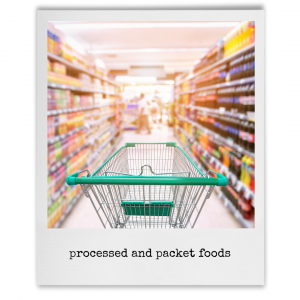
Specific foods that stress you
There are several foods on my hit list but the number one food stress is sugar!
SUGAR:
It is not just the cakes, cookies, and chocolate though – all foods that break down to glucose quickly need to be eaten in moderation. This is because a spike in glucose is a big stress on the body and it must make insulin to rebalance levels. This can then have a knock-on effect on other hormones and imbalance those.
This means white pasta, white rice, packet bread, mash potatoes and tropical fruits can be eaten, but in moderation. The sweets, chocolates, cakes and ice cream need to be much more restricted. You can still enjoy slow release carbs such as wholegrain rice, jacket sweet potatoes, oats and all vegetables and low sugar fruits!
PROCESSED FOODS:
Especially ultra processed foods. These foods often do not have a lot of real foods in them and instead have lots of stabilisers, emulsifiers, preservatives, colourings and flavourings to keep them cheap and help them last longer. These added chemicals make the body work harder to clear them out. They are often high in trans or saturated fats too, which the body will want to store. They link to weight gain, inflammation and mood disorders and the body gets quite stressed when we eat them. If you want to learn more about which foods to avoid and some simple swaps then my self guided "Quitting UPFs" course is perfect for you
TOO MUCH OR TOO LITTLE FOOD:
A bit like Goldilocks we should aim to not have too much or too little food. We need it to be just right. If we consume too many calories our body must work hard to process and store the excess which means it is not working in the best way. If we eat too little the body may have to break down muscle and bones to get the nutrients it needs. Eating 3 meals a day each with some lean protein, a little carb and half a plate of vegetables is a great way of ensuring about the right amount.
CAFFEINE & ALCOHOL:
Both caffeine and alcohol also increase stress. They impact sleep negatively and they are stimulants and therefore, whilst not a direct food stress, do need to be reduced if you are looking to de-stress your body
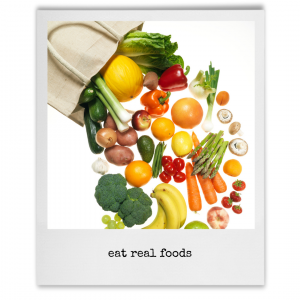
Foods that support stress
When you re thinking about foods that might help your body, you need to be thinking about real foods. Real foods are generally fresh or frozen and look like they do in nature. Real foods are rarely found in packets and real foods typically have a short life so cannot be kept in cupboards for months on end
My top 3 food categories to consider are
FRUITS & VEG:
These contain a lot of the nutrients our body’s need to work more optimally. They also naturally have high levels of vitamin C. Vitamin C is utilised a lot in the stress response and so it is important that we replenish it. We should aim to eat at least 6 portions of vegetables and 2 portions of fruits each day. For more info read this blog
LEAN QUALITY PROTEIN:
The components of proteins (amino acids) are what makes the hormones and the neurotransmitter that enable the stress response so it is very important to eat protein rich foods. I have suggested lean options here as they are less likely to be high in saturated fats or processed. Proteins also have the benefit of supporting blood glucose levels which can help with feeling calm and with weight management too.
FOODS RICH IN MAGNESIUM:
Magnesium is a natural muscle relaxant. Magnesium is often depleted in those with high levels of stress and having good levels of magnesium is great for reducing stress. So, it is great to try to include foods that are rich in magnesium in your daily eating. This includes nuts and seeds, beans and pulses, fish and seafood, 85% dark chocolate (yay!!) and green leafy vegetables
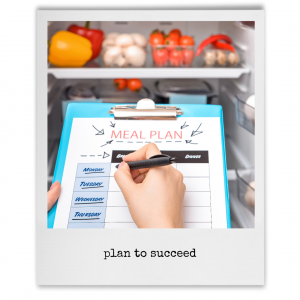
Tips to Help reduce Food Stress
It can feel overwhelming to make a lot of changes to your eating and might even feel like it would increase your stress. So, to make it simple I suggest you just make one change at a time. There are lots of things you can do but my number one recommendation would be to meal plan. Not just your evening meals but planning all meals is best. I have a very easy guide to help you with meal planning here
Other ideas to help reduce food stress include
- One less snack in the day
- Switch one coffee to a herbal tea
- Switch one alcoholic drink to water or kombucha
- Eat a portion of green vegetables at dinner time every day
- Add a portion of fruit to breakfast or lunch
- Try a sugar free day once a week
So there you have it – food stress is real and you may be able to help reduce your overall stress just be changing a few of the things and ways that you
Janet x
